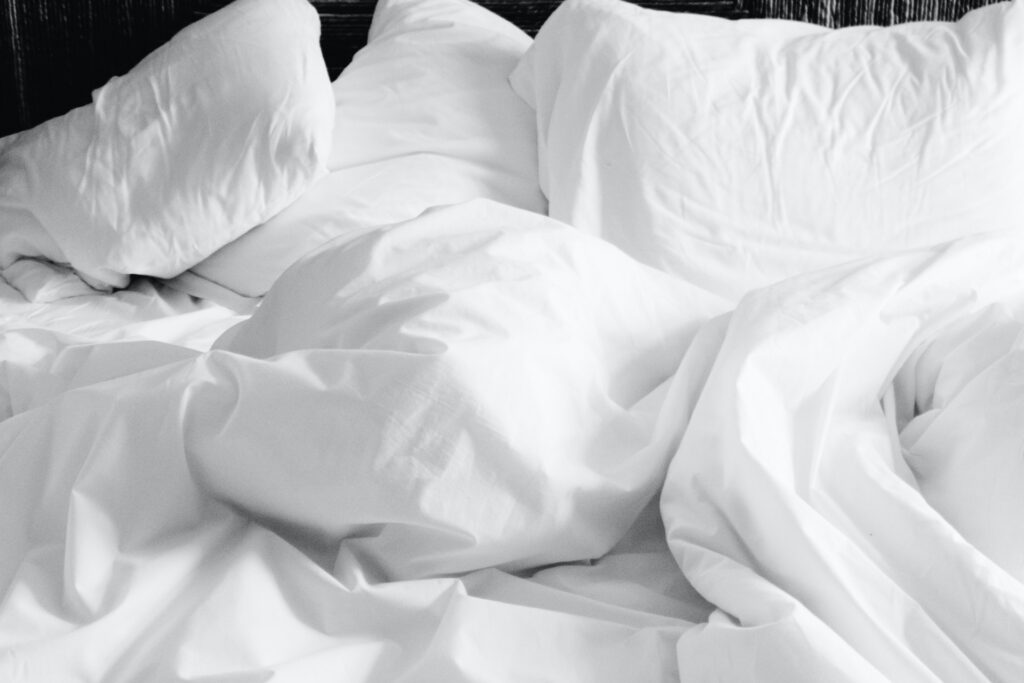Can we help those with dementia to sleep through the night?

Many carers report that their relatives living with dementia struggle to sleep through the night. Sleeplessness is a problem many of us face, whether we’re carers, cared-for, or just living our normal lives.
It’s a particular problem for those with dementia because of worries over their safety, especially if they live alone. If they get out of bed in the dark, are they likely to fall? Will they leave home and wander the streets? Will anyone be aware that they are in difficulties?
There is always medication, but long-term use of sleeping drugs isn’t recommended, and many of us would rather find other ways to help. The good news is that there are plenty of options – many tested by carers – that could be worth trying.
So here are a few suggestions.
More daytime activity
Lack of exercise and mental stimulation can affect everyone’s sleep. It’s easy to end up dozing in the day and being unable to sleep at night. And that’s particularly true during the days of lockdown, when we can’t see people socially or leave the house for long. And with little new to watch on television, that’s pretty unstimulating too. But if you can support your relative to go outside for a while, talk to friends and family online or on the phone, exercise and find activities in the home, that can all help.
Understanding that it’s night
If someone living with dementia wakes at night, they may struggle to know if it’s actually time to get up or not. There are very simple clocks available that make it clear whether it’s daytime or night, and that may be all that’s needed to encourage them to turn over and go back to sleep.
A comfortable bed
It’s surprising how time passes when it comes to mattresses. You think your parent’s bedding is fairly new and then realise it’s been a decade since the mattress was replaced, and if you try out it out yourself there are definite lumpy bits. Replacing the mattress and adding a topper can all help to make the sleeper more comfortable at night. And checking the state of the pillows and sheets is a good idea too.
Weighted blankets
Originally developed to help with children with autism, weighted blankets are bed coverings with numerous pockets filled with slightly weighted materials. The effect is to wrap the blanket around the owner at night, providing a feeling of comfort and safety. And it’s harder to lose the blanket through tossing and turning, or feel the need to get out of bed. You can buy the blankets from a wide range of retailers. Find out more about the uses of weighted blankets.
Aromatherapy sprays and diffusers
I’ve been using an aromatherapy spray to combat my own chronic insomnia, and I think it helps. I’ve got a sensitive nose, but the lavender-based spray I use is very pleasant and does seem to be soothing. You can also use diffusers with a variety of essential oils.
Music and the radio
A complication of favourite music or perhaps some speech radio – many recommend the Shipping Forecast – can be very soothing. There are radios available that are very simple to operate, so all your parent has to do is switch it on or off.
Soothing apps
A couple of apps that others have recommended are Calm and Headspace. If your relative is able to use a phone or similar, these could be helpful. These aren’t so useful if your relative has hearing issues, and the choice is to turn the radio or phone on very loudly, which isn’t great for the neighbours, or fall asleep wearing a hearing aid, which is pretty painful.
Bright light therapy
Bright light therapy is used to treat people who suffer from circadian rhythm sleep disorders. This is when the body’s internal clock that tells us when to sleep and when to wake has been disturbed. There are numerous products on the market, including light boxes, lamps and dawn simulators, that aim to help reset sleeping times.
Sleep hygiene
I’ve left this to the end of this article, as sleep hygiene advice has been widely shared and you may well have tried many of the ideas. But there’s no harm in looking at avoiding drinks in the evening if they mean waking up with a full bladder, checking that the curtains keep the light out effectively, having a warm bath before bed, and avoiding too much mental activity late at night.
Looking for other reasons
There could be underlying health issues that are affecting sleep. Diabetes can mean that people wake to use the bathroom more often, for example. Parkinson’s Disease, depression, restless leg syndrome, an overactive thyroid, pain, and dementia itself could all contribute. If the sleeping problem is new, it’s not a bad idea to check for health problems that could be responsible. Medication could also be a cause.
On the other hand, if your relative has always been prone to waking in the night, they may simply be following in the patterns of our ancestors. It seems in the past it was perfectly acceptable for people to sleep for a few hours, get up and do stuff – even go out to meet friends at coffee houses – and then return to bed for a while longer. The idea that people who sleep for eight hours straight are the novel ones is something from which I take great comfort.
However, it is certainly a good plan to check there aren’t other health issues causing sleeplessness. And if night waking is causing anxiety, then there are plenty of possibilities to explore that might help.
Image from Pexels.
